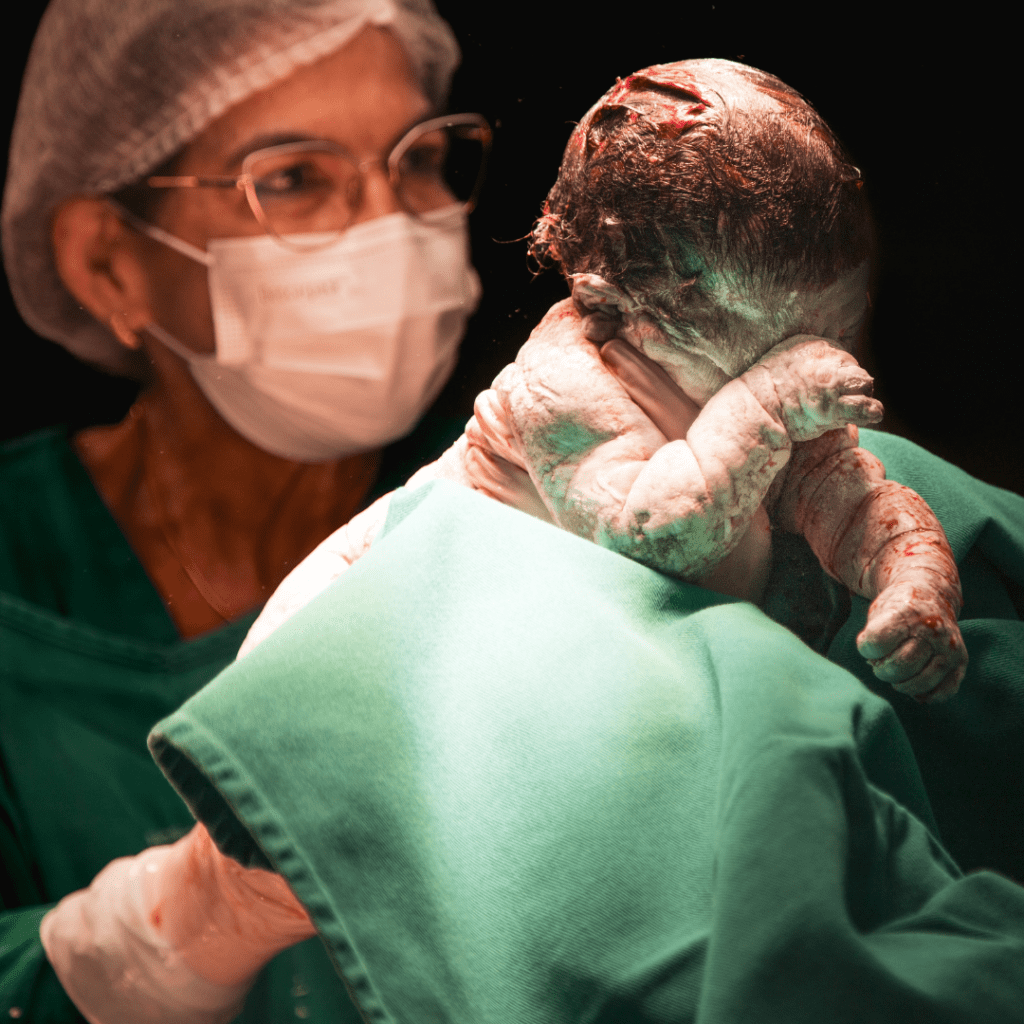“When I went to the hospital to deliver my first child in March 2020, I believed I was fully prepared. I went to all my appointments and even took a multi-week long birthing course. I thought I’d instantly connect with my newborn daughter and we’d live as a family of 3, in pure bliss! I could not have been more wrong.”
Jena Roeber, Occupational Therapist
Jena Roeber, OT
Introduction
This is the story of Jena and countless other first-time moms or even multigravida moms. The experience of childbirth is often sugar-coated, making the masses believe that it is similar to riding a rainbow. You go into a room and with a little effort get blessed with an angel. While it may be that way for some women (I have yet to meet one), it’s usually a completely different scenario. Whether it is families who just try to wing it while only relying on information from their care provider, or the ones who research the whole process for themselves, the real birthing experience always comes with surprises often unwanted. Let’s continue reading Jena’s story which I believe accurately portrays a universal experience.
Jena
“During labor, I felt like I was being instructed what to do instead of being provided with options and educated on what was happening. Due to COVID, our interaction with professionals was limited and so was the opportunity to be educated. It continued even after I delivered the baby.”
“On top of everything, I failed to feel that instant connection with my newborn daughter that I was promised. But I couldn’t admit that to anybody because it wasn’t normal. I ended up feeling defeated and as If I had failed her already.”
Research from Roseth et al shows that almost 40% of first-time mothers do not feel an instant connection with their newborn child. For most, it develops within a week, while some mothers struggle for weeks or even months. Furthermore, feelings of failure are often linked to a negative birthing experience, where the mother feels responsible for the stress endured by the baby. Thank only get worse when women are neglected after the delivery while the child gets all the hype. I’m not saying that the child is any less important. But childbirth is a major event in a person’s life. If everyone around them is only interested in how the baby is doing, they’re justified in feeling neglected. Similar was the case with Jena.
Idun Røseth, Rob Bongaardt, Anne Lyberg, Eva Sommerseth & Bente Dahl (2018) New mothers’ struggles to love their child. An interpretative synthesis of qualitative studies, International Journal of Qualitative Studies on Health and Well-being, 13:1, DOI: 10.1080/17482631.2018.1490621
Jena
“The next few days at the hospital were focused on making sure the baby was doing well with little questioning about how I was feeling. There was no discussion of what would happen when we leave the hospital and what to watch for at home when we no longer had medical staff around. I didn’t receive any breastfeeding support at the hospital which I knew I needed and even advocated hard for. My husband felt he didn’t know how to best support me. We weren’t told about any signs to watch out for at home. Luckily we knew where to look.“
Jena
“My first night home, I felt lost and met with crippling anxiety. It took a persistent friend, asking me every day, how I felt and how I was doing, to make me connect with my feelings and fears, and realized that this isn’t the way health care should be for new moms. The gap in health care for pregnant and postpartum moms is just too large.”
Jena
“When I had my second baby, I knew how to prepare. We talked with a doula to learn how to better advocate for ourselves in the hospital. I went for pelvic floor therapy to prepare my body and learn the best labor techniques for myself. Even during the birth of my second child, I was still having moments where I felt out of control. I knew I deserved more. To this day, no one has ever asked me how I was doing immediately postpartum like that one friend did.”
All parents, especially new ones must be guided on how to navigate life with a child around. We make new discoveries every day, but they are of no use if the general public does not understand or even apply better strategies in their lives. They are left to figure it out for themselves, which may happen eventually, or not at all. This needs to change!
Jena Roeber, OT
“Occupational and physical therapists need to see moms immediately postpartum. To provide support for the new mom, prepare her for her change in roles and routines, and to educate her about her wellness during the first few weeks postpartum. Therapy can provide a look into cardiovascular function during those immediate postpartum days.”
Other abdominal surgery patients are told to not lift more than 10 pounds, which is not feasible for new moms. They need to be guided on how to safely protect their body while carrying a baby in a car seat. They also need to be taught that it’s okay to ask for assistance instead of tiring themselves out of life. Their baby needs them in the best shape.”
“Simulating tasks in the hospital that mom will complete at home will give us insight into possible risk factors. We as therapists can provide moms with mental health strategies during that new and ever-changing postpartum period.”
Jena Roeber, OT
Recipient of the Linda Carol Fund




